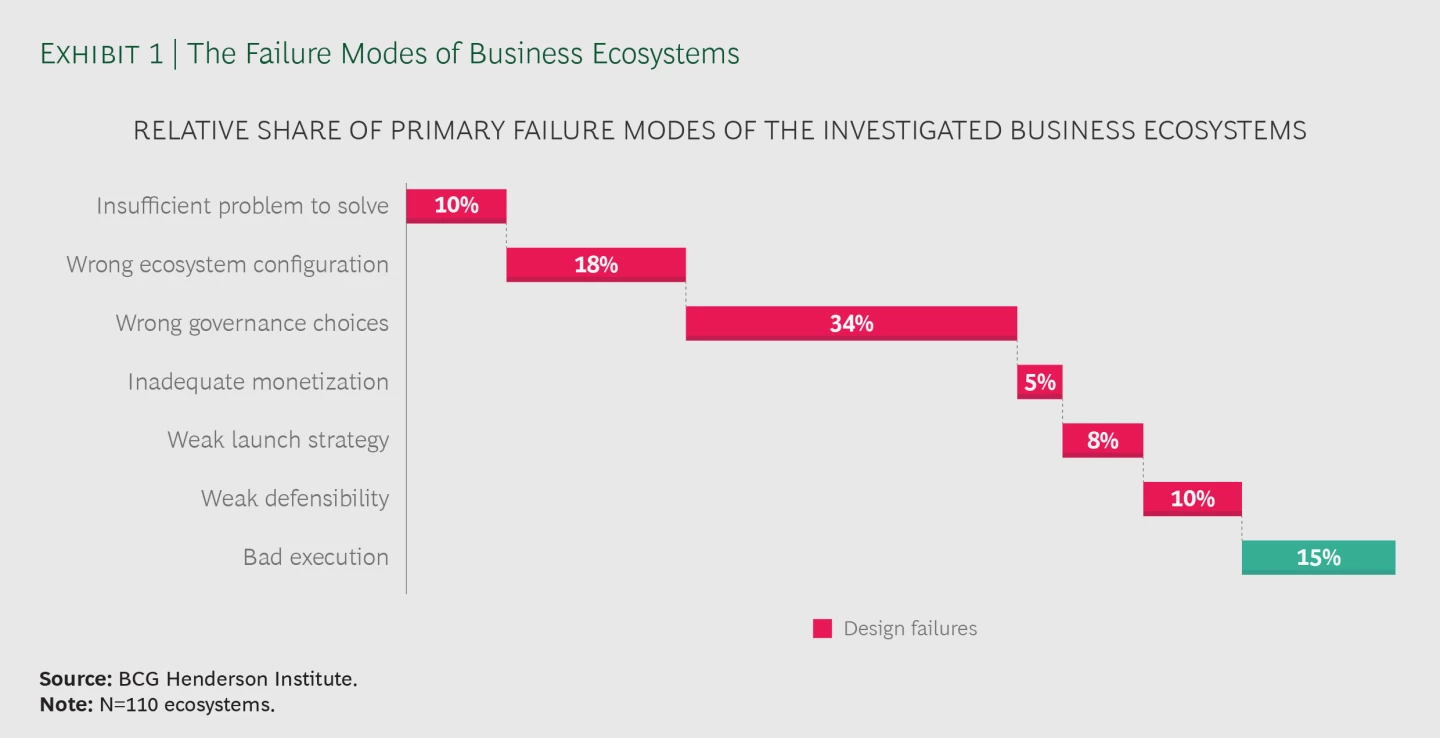The other day, a friend pointed me to a post by Asher Matthew, CEO of Partner Leaders. In it, he claimed that the “#1 problem in partnerships” was getting fixed, and the problem cited as the one at the top of Ecosystem Problem Mountain? Nomenclature. According to the opinion expressed in Asher’s post, traditional channel leaders adopting more ecosystem-oriented titles is the solution to our “#1 problem.” I could not disagree more.
Usually, I’d let an opinion this out-of-touch with reality slide with a groan, but when it comes from someone leading one of the top organizations in the ecosystem space, it deserves a response. This isn’t about calling anyone out but calling us all in. As a community, we have a credibility problem. Too often, we get caught up in a bubble of oversimplified, overhyped solutions that don’t do justice to the actual complexity of the challenges we face. This isn’t about tearing anyone down but building a stronger, more honest foundation for the vital work we’re all trying to do.
The truth is, there’s one problem and one problem alone that we need to solve before we can even think about tackling surface-level issues like titles and naming conventions. What’s that one problem? Simple. No one f***ing believes us.
It’s Not About the Terminology
Sure, the lack of a shared vocabulary can make it tough for ecosystem professionals to collaborate effectively, but let’s be honest—that’s not even close to our biggest problem. Frankly, I’m not sure it would crack the top 20 challenges facing partner and ecosystem professionals today.
It’s also not really about how we execute things either—a study by BCG shows only about 15% of ecosystem failures stem from execution issues.

So, again, the real reason our ecosystem strategies fail: no one f*** ing believes us.
We work across all parts of the companies we serve, adding and extracting value everywhere. Ecosystem development could—and arguably should—be the most strategic element of a company’s go-to-market (GTM) strategy, but it struggles to gain legitimacy. Instead, it’s typically viewed as less strategic and more disposable than services, product, sales, or customer success. As a result, we fail 90% of the time—not because we aren’t delivering, but because no one believes in the value we’re creating, and they have no way to independently verify the success we achieve.
Why Don’t They Believe Us?
Why? Because we’re a black box. We have no unifying methodologies, processes, KPIs, or even the clear main objectives our peers enjoy. Sales? Sell. Marketing? Market. Product and engineering? Build and design. Customer success? Keep it all running.
Partnerships? Sometimes, we focus on lead generation; other times, we focus on driving sales, building integrations, improving customer engagement, or supporting strategic alliances. The list goes on, and our focus shifts depending on the needs of the business at any given moment. Our scope is sprawling, and we need help from everybody—which makes our efforts hard to define and even harder to measure.
So, of course, no one f***ing believes us.
Because no one believes us, we waste time arguing about vocabulary, titles, and execution strategies. We shout about how CEOs need to pay attention without giving them the proof they need to do so. Instead of just making noise, we need to take meaningful actions that demonstrate our value in a way they can believe and can’t ignore.
We need to clearly demonstrate the value we provide, avoid the temptation to seek simplistic, black-and-white answers to a highly complex problem, and focus on making a clear, measurable case for why partnerships are essential to the success of the business.
We Need to Change Our Approach
Until CEOs, executives, and boards can see what we’re doing—and measure our contributions in a meaningful way to both the CEO and the CFO—we won’t get the seat at the table we deserve. We need to show measurable results that matter to them. Without that, it’s not going to happen.
If we don’t change our approach, we risk watching our profession slip further away from its profound strategic potential and becoming relegated to being nothing more than high-paid SDRs, channel sellers, or lead-gen teams. We have to stop acting like we have all the answers and expecting everyone to simply trust our insights. Instead, we need to collaborate, align with other functions, and demonstrate tangible value that resonates with CEOs and CFOs alike.
CEOs and CFOs aren’t clueless. Like anyone else, they need to be convinced when faced with something unfamiliar—especially when that thing isn’t working well at the moment. They need clear evidence, tangible metrics, and a solid reason to believe in what we tell them we’re working towards accomplishing.
Open the Black Box
We need to speak their language, open up the partnership black box, and provide layers of accountability and measurability that allow CFOs, CEOs, board members, peers, and partners to see the results. They need to understand how we got there and hold us accountable—just like any other go-to-market function.
I’ve heard plenty of disparaging terms used to describe “the typical partner play,” and a lot of it comes down to the fact that nobody sees what we’re doing. We’re building relationships. We’re identifying value exchanges. We’re searching for pathways to generate leads, create product integrations, drive innovation, and grow customers—the very reasons partnership teams were created. If we show people what we’re doing, they’ll start to believe it. Then, we measure it. Then they really start to get it. And as soon as they get it, they can believe in it and invest in it.
Only then will ecosystems as a discipline finally break free from the rigid, sales-oriented channel strategies that, while important to many organizations, are simply out of reach for most. By proving their value with concrete results, ecosystems will gain the legitimacy they need and earn their rightful place at the strategic table.
Committing to Real Solutions
This past year, I’ve dedicated myself to solving this problem. I’m building a solution that not only counters the narrative of failure but also demonstrates our value clearly, measurably, and in a way that’s impossible to ignore. We need to hold up a mirror to ourselves and to the loud voices in this industry who push for quick fixes without understanding the underlying complexities or showing empathy for those struggling to see value. Instead, we must come alongside those who are genuinely struggling to understand the value that ecosystem teams bring and help them see how ecosystems drive growth, innovation, and long-term success.
We need to show that real progress requires nuanced, strategic work. It’s not about easy solutions; it’s about dedicating ourselves to meaningful, collaborative efforts that can be measured and believed in.
We have a lot of work to do, my friends, and I hope quarq.ai can be part of the solution.
Thank you.


